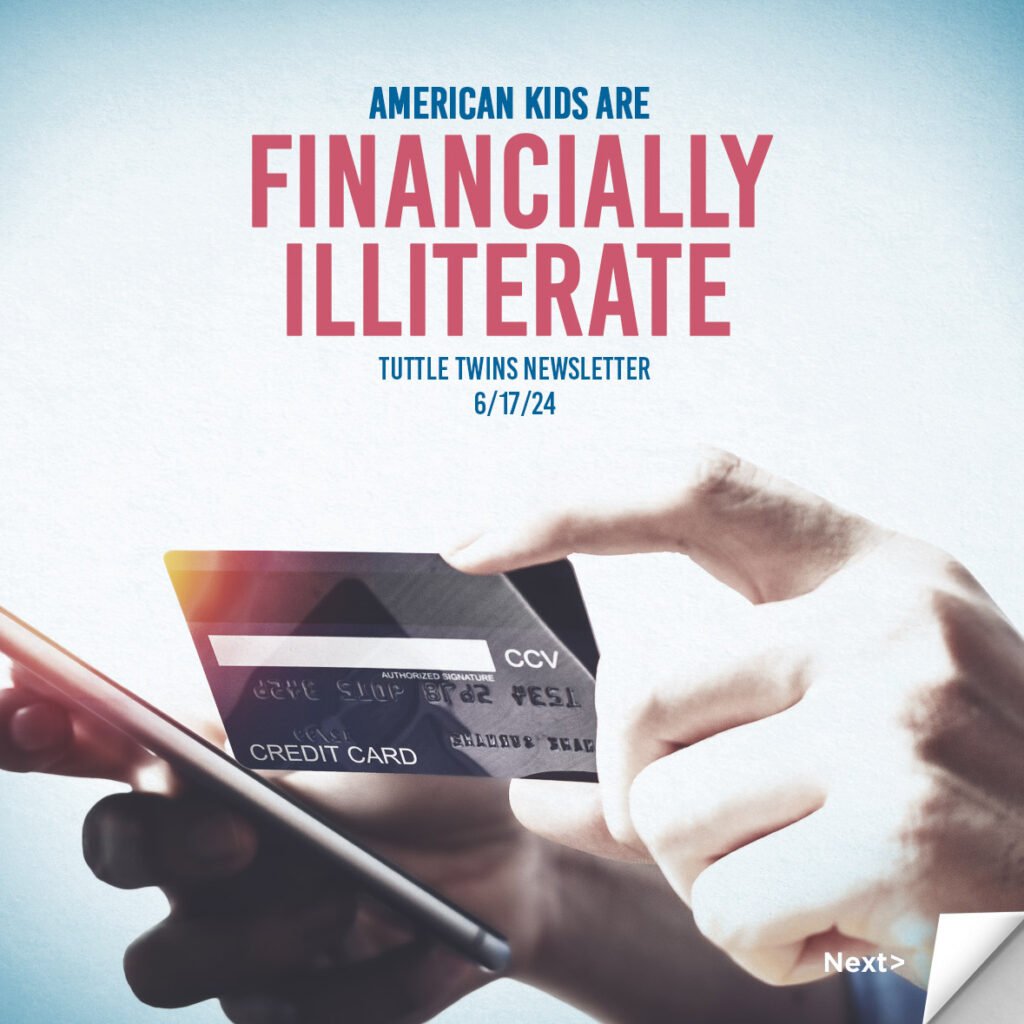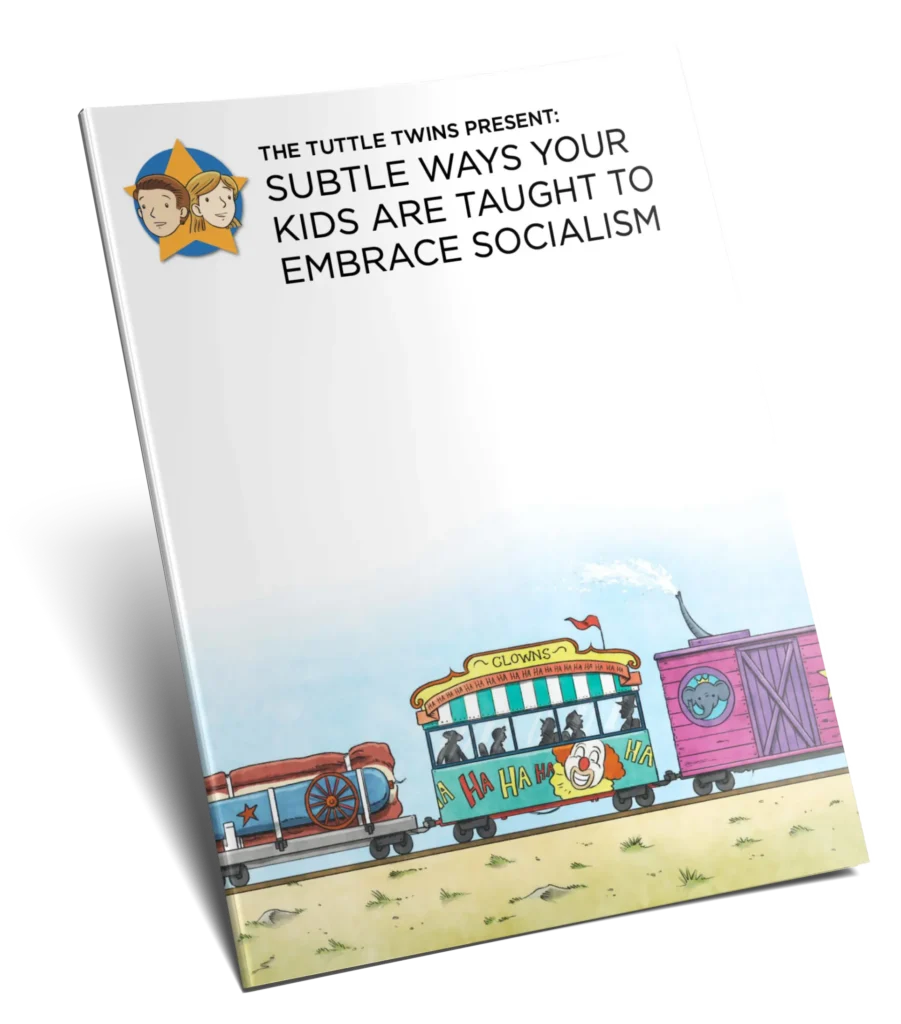
Good morning!
Ok. Let’s talk kids and money.
Did you know that the average financial literacy score among young teens is a measly 57%?
That’s according to a survey by the National Financial Educators Council.
That’s pretty bad—especially when you consider the economic hurdles our kids are set up to face.
I wish I could say that schools not teaching financial literacy in any meaningful way is just a simple oversight, but it feels more like a deliberate choice.
Schools are so busy pushing ideological content that they’ve simply opted out of teaching practical life skills.
The fallout from this educational neglect has serious consequences.
Without a good grasp of personal finance, young adults are more likely to end up in debt, struggle to save, and be totally unprepared for financial emergencies.
This isn’t just a personal disaster—it’s a societal one.
A financially clueless generation spells trouble for the economy at large, and a society as a whole. I think we’re already seeing the consequences.
So, since kids aren’t learning this stuff in school, it’s up to parents and grandparents to bridge the gap.
But how?
First off, we need accept that we can’t rely on schools to get this right. Just like so many other subjects (like history and biology) our kids’ understanding of this is going to have to come from us.
The best place to start is with the basics:
- Talk to your kids about what money is, how it’s earned, and why saving is crucial.
- Use real-life scenarios to teach concepts like budgeting and investing.
- Help your kids set financial goals to help them understand the value of waiting for something worthwhile.
Practicing delayed gratification is one of the most important lessons a young person can learn because the impacts reach far beyond money and finance.
It’s also vital that kids get some hands-on experience with money.
By allowing them the opportunity to earn their own cash through chores, small jobs, or entrepreneurial endeavors, they are getting the chance to learn how to manage their own earnings and plan for their own futures.
I’m consistently blown away by parents I encounter who seem to want to “protect” their kids from having to work or “think about” money. It’s such a disservice!
I promise that kids who learn about and have the chance to handle money in a real and meaningful way will be far better off than kids whose parents simply buy everything for them and who never encounter their own personal finance lessons until they turn eighteen and get their first credit card pre-approval in the mail.
Yikes.
I talk to a lot of parents as I travel around the world speaking at various education conferences, and I’ve learned that a lot of parents feel unqualified to teach their kids about financial literacy because they didn’t learn about it in schools either.
There are a whole lot of adults who have had to simply learn about money through trial and error, and who still feel a little intimidated at the prospect of taking a teaching role on the subject.
A few years ago, we set out to create a full economics curriculum that parents could use to teach their kids everything they need to know about money, finance, and the economy.
Our award-winning, Free Market Rules! economic curriculum offers a comprehensive and engaging way for children to learn about the free market.
The complete set includes 30 units, each with 4 lessons (that’s a total of 120 lessons!) tailored for kids ages 5-18.
We even include family discussion prompts, and extra reading for parents who feel like they might want to dig a little deeper into the material. It’s truly an econ curriculum for the whole family!
Each unit centers around a key economic question, such as “What makes something useful?” and “How do supply and demand work together?”
Bonus: it’s available in both digital and printed formats!
In the end, regardless of how bad the schools are, we have the power to make a difference in the way our kids think about and engage with the world around them.
Their success or failure lies squarely in our hands.
By actively teaching our kids about money, we can set them up for success. We can raise a generation of financially savvy adults who have the best chance at living prosperous and peaceful lives.
We’ve got this!
— Connor

